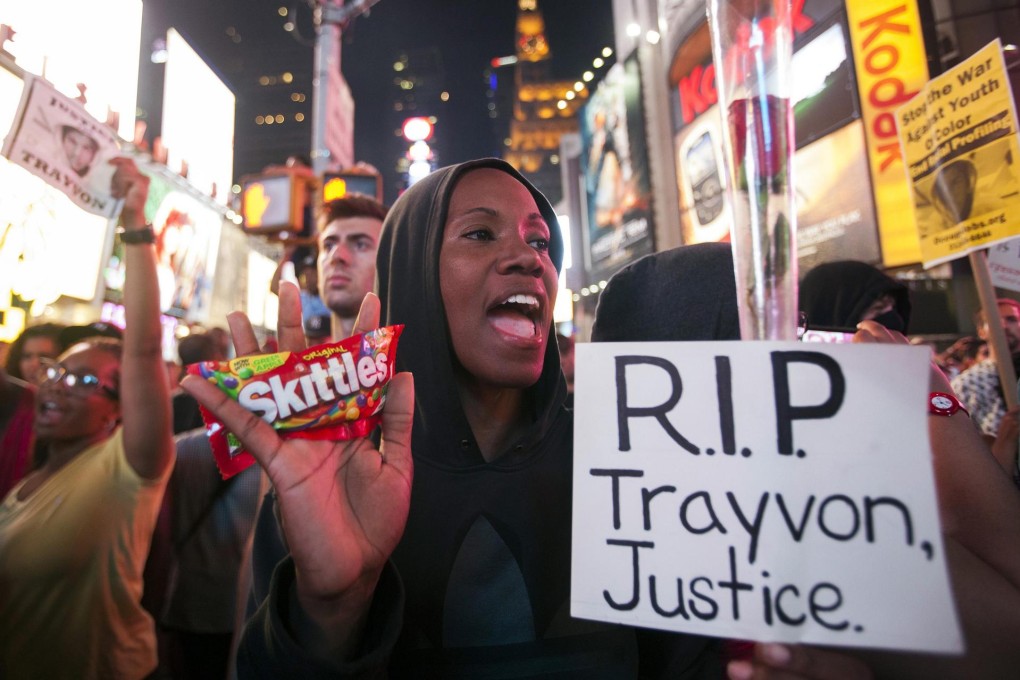Skittles the symbol of dead teen Trayvon Martin's innocence
About the only thing that everyone agrees on is what Trayvon Martin was carrying when he died. There were his clothes, including a black hooded top with a badge pinned to it showing a picture of his dead cousin. There was his cellphone, on which he had been talking to a friend. In his pockets were a cigarette lighter, some earphones, a can of Arizona watermelon fruit juice cocktail, a little over US$40 in cash, a bag of Skittles he had just bought from a nearby 7-Eleven, and no weapon of any kind.

About the only thing that everyone agrees on is what Trayvon Martin was carrying when he died. There were his clothes, including a black hooded top with a badge pinned to it showing a picture of his dead cousin. There was his cellphone, on which he had been talking to a friend. In his pockets were a cigarette lighter, some earphones, a can of Arizona watermelon fruit juice cocktail, a little over US$40 in cash, a bag of Skittles he had just bought from a nearby 7-Eleven, and no weapon of any kind.
Whether or not you believe George Zimmerman, the neighbourhood-watch co-ordinator who says he shot Martin in self-defence, these do not sound like instruments of burglary. Indeed, the Skittles especially, with their bright playground colours and "Taste the Rainbow" slogan, have become a symbol of Martin's innocence. He may have been suspended from school at the time, and had traces of cannabis in his blood, but when you look behind the appearance of a menacing black teenager, those Skittles say, you find the child inside.
Since the killing, as pressure grew for Zimmerman to face a murder charge, and now in the outrage over his acquittal, bags of Skittles have become the protesters' flag. They have been waved, hung around necks, taped over mouths and even glued to placards, often combined with hoodies and sweet drinks. Packets were bought and sold to raise campaign funds, or posted to Bill Lee, chief of the Sanford police department, which declined to charge Zimmerman for so long.
Conversely, Skittles are now a point of attack for those who believe Martin was one of those rare unarmed 17-year-olds who can be dangerous enough to merit killing. The Skittles and the drink he bought, some have suggested, could have been ingredients to make lean, a homemade drug based on cough medicine that might cause aggressive and irrational behaviour if overused. (The fact Sprite and Jolly Ranchers are more usual, and that Martin did not have any cough medicine are also worth considering.)
The Wrigley Company, which makes Skittles, has kept wisely quiet about the uncomfortable but lucrative position that it finds itself in, saying only that it would be "inappropriate" to get involved. Zimmerman's 9mm Kel-Tec handgun will now be returned to him. But when the Seminole County criminal justice centre has finished with Martin's still-unopened bag of Skittles, it belongs in a museum.
